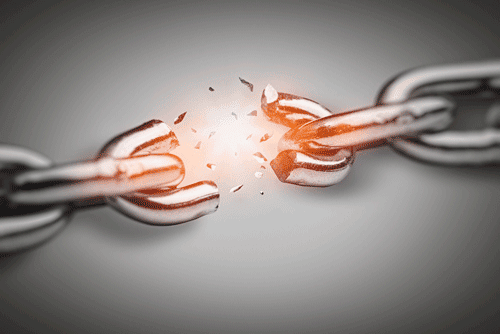Forgiving Yourself in Recovery from Addiction
Forgiving yourself in recovery is essential.
 Learning to forgive yourself is essential as you begin to do more self-healing in your recovery. We often have a tendency to hold ourselves to such strict standards that we find no reason or justification to forgive ourselves. Maybe you’ve found yourself in a certain situation, able to forgive someone else for even the harshest of pains yet you may be torturing yourself over a lesser offense. It is common to hold on to past mistakes that we feel are not forgivable out of fear of forgetting the hurt and repeating the behavior. So, we torture ourselves by replaying the feelings, punishment or guilt over and over again. Staying in this cycle keeps us stuck. It is nearly impossible to truly move through the stages of healing while holding onto the notion that we are unforgivable.
Learning to forgive yourself is essential as you begin to do more self-healing in your recovery. We often have a tendency to hold ourselves to such strict standards that we find no reason or justification to forgive ourselves. Maybe you’ve found yourself in a certain situation, able to forgive someone else for even the harshest of pains yet you may be torturing yourself over a lesser offense. It is common to hold on to past mistakes that we feel are not forgivable out of fear of forgetting the hurt and repeating the behavior. So, we torture ourselves by replaying the feelings, punishment or guilt over and over again. Staying in this cycle keeps us stuck. It is nearly impossible to truly move through the stages of healing while holding onto the notion that we are unforgivable.
Let’s clarify one thing; forgiving yourself in recovery doesn’t have to mean necessarily forgetting. Let’s view it as learning how to stop bringing up past mistakes in negative or condemning ways. It’s about learning how to grow from the experience and let go. After all, we are human. Mistakes are inherently part of our growth and connection to others.
In life we are given an array of choices. We have opportunity after opportunity to change the direction of our day, week, year and ultimately life. Every decision and choice we make can take us in a positive and healthy direction, or it can steal precious opportunities for self-growth and healing. The act of forgiving ourselves doesn’t make us weak and it certainly doesn’t justify what was done. Instead it is a choice that takes courage, requires us to be brave and vulnerable. Doing so gives us the chance to overcome obstacles and mistakes rather than remaining stuck in that situation.
Here are 4 ways you can start working on forgiving yourself and moving forward in a positive direction toward healing:
1. Identify your core values and morals
One of the reasons we experience guilt over past situations is because it doesn’t necessarily line up with our current morals. The not so good choices from the past can actually provide a place in thought to begin thinking about what really matters. By identifying your key values and morals, you can begin to further reveal why you may be continuing to hurt over things of the past (whether that be your own actions or someone else’s). This is a great place to start implementing change.
2. Identify the past mountains
This may require some deep work supported by a therapist, group or trusted friend. What this may look like is doing a bit of soul searching, taking responsibility and then moving on. In life there are those defining moments…some great and some not so great, each impactful in its nature. When there is something in the past that may have involved others whom we wish to clean the slate with, it may involve bringing this hurt back onto the table and apologizing. This doesn’t mean hashing out the opinions and details over and over again but rather accepting responsibility and genuinely making things right – to the best of the relationship’s ability.
3. Taking steps toward forgiving yourself in recovery
At some point we must acknowledge that the past is in the past. We typically handle situations with the current set of tools we have. At some point in our life, maybe when we didn’t have the right tools, we became accustomed to the wrong tools and, as a result, we may have acted in ways we wish we hadn’t. That’s ok! We have new tools now, new values, new morals, which means new opportunities to respond and live out relationships as we truly desire. It is important in this step to not drag our old “baggage” along with us. We can learn from it, process it and handle it in a healthy manner but then it’s time to turn the page.
4. Have compassion for yourself
It is important to realize we are all a work in progress…and progress is made over time. Hindsight is usually 20/20 so we can often look back at areas of our life we wish we had made different choices. Use this insight to be able to make better choices in the future. Practice staying present, and living a life that aligns with your morals and values. Be patient with yourself and remind yourself that perfection is not expected…it’s about the journey!
Liked this article on forgiving yourself in recovery from addiction? You might also be interested in How to Forgive, by Thaddeus Camlin, Psy.D..
